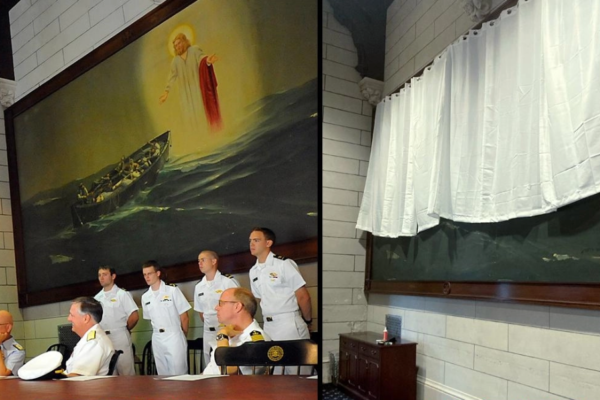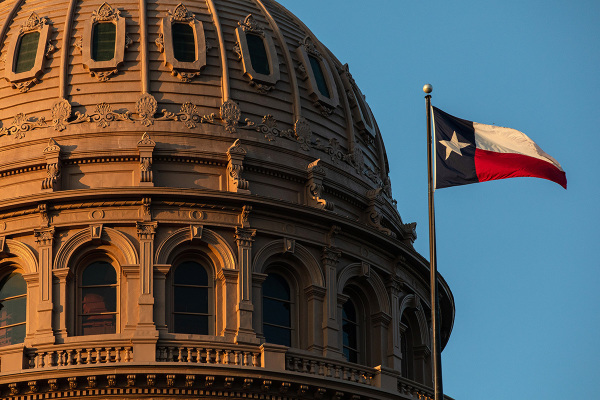Eritreans Protest Persecution of Christians on Anniversary of Church Crackdown
Around 100 people held a rally last week at the Eritrean Embassy in London to mark the 10th anniversary of the government's crackdown on Christians and religious people in the small African country often compared to North Korea for its repressive regime.
The government of Eritrea grants religious freedom to only a handful of faith groups – the Roman Catholic Church, the Eritrean Orthodox Tewahdo Church (which is not recognized by the Orthodox papacy), the Evangelical Lutheran Church and Sunni Islam. All other faith groups are illegal, and as many as 2,000–3,000 Protestant Christians in the country have reportedly been jailed for their beliefs.
Every church in Eritrea not belonging to these specific faiths has been closed down, despite activists and concerned citizens calling on the international community to put pressure on the government and call for the release of all prisoners of conscience.
Christian Solidarity Worldwide (CSW), an organization in England working for religious freedom through advocacy and for the promotion of human rights, shared with The Christian Point its perspective on the situation in Eritrea.
"Eritrea is one of the world's most repressive regimes, often likened to North Korea. It is a single-party state dominated by a dictatorial president, and the military pervades every aspect of society, including the economy. The regime demands total allegiance, thus Christians are perceived as a threat to national unity due to their ultimate allegiance to a higher being," explained Kiri Kankhwende, the organization's press officer.
In their letter delivered to the embassy last week, protesters assured officials that Eritrea's Christians were good citizens.
"Contrary to prevalent government thinking, the teachings and principles of our faith encourage good citizenship and loyalty to one's country. We are confident that Christians in Eritrea are committed to strengthening the nation, and to contributing positively towards its development," the letter reads.
Protesters also shared in the letter the "inhumane condition" Christians face in prison.
"The testimonies of people who escaped from prisons in Eritrea attest to inmates being incarcerated in inhumane conditions, physically and mentally abused, and deprived of access to adequate food, potable water and medication. We are aware that several have died following mistreatment and/or denial of medical attention, and are particularly concerned at the continuing practice of requiring prisoners to sign statements renouncing their faith as a prerequisite to obtaining their freedom," the letter states.
Kankhwende shared that 10 years ago, on May 15, 2002, all churches except those belonging to the Orthodox, Catholic and Lutheran denominations were effectively banned and the era of mass arrests of Christians began. Members of independent evangelical and charismatic churches have been particularly singled out, and even licensed churches suffer persecution.
The Orthodox Church patriarch in Eritrea, Abune Antonios, has been under house arrest since 2006 for resisting government interference in church affairs, and priests seen as sympathizing with him have been detained and harassed, according to CSW.
Kankhwende further explained that thousands of Eritreans flee the country every year, but risk a government shoot-to-kill border policy.
"Many are fleeing military conscription, which can last indefinitely and is mandatory for all citizens aged between 18 and 48 years. The U.N. Refugee Agency (UNHCR) estimated in 2011 that there are over 100,000 Eritrean refugees in Sudan, with around 1,600 crossing the border every month. Some fall into the hands of abusive traffickers, and are held hostage in torture camps in the Sinai Desert pending payment of exorbitant ransoms, or the forcible removal of organs," the CSW press officer said.
"Others receive inadequate assistance from the countries they arrive in, and continue to suffer. The Eritrean security services have been known to pursue or harass refugees in foreign countries through their agents abroad, while countries such as Sudan and Egypt have in the past forcibly returned Eritrean refugees and asylum seekers despite evidence of the severe mistreatment of returnees," she continued.
Official statistics on Eritrea's population are hard to come by, but according to a study by the U.S. Department of State, about 48 percent of the population identifies as Christian, while 50 percent are largely Sunni Muslim. Around five percent of that Christian population falls in the groups outlawed by the Eritrea government.
"Right now we're working to raise awareness of the situation for Christians in Eritrea, and the suffering of the Eritrean people at the hands of their government," Kankhwende shared on what Christians from around the globe can do to help persecuted Eritreans.
"CSW is advocating at an international level, and working with the media to raise attention of their plight. Interest has been growing in the media with regards to the treatment of Eritrean refugees by people traffickers in the Sinai, especially following commentary by Pope Benedict XVI. Unfortunately, we have not yet seen effective action on behalf of the international community to deal decisively with the trade in hostages and organs, which many Eritreans and other refugees from the horn of Africa fall victim to in places like the Sinai," she said.
"We are encouraging Christians to pray for Eritrea, for freedom for her people. We are also urging people to partner with our Cry Freedom campaign and donate a tweet a day to raise awareness about what is going on. We would also encourage Christians to write to their elected officials and express their concerns."






















